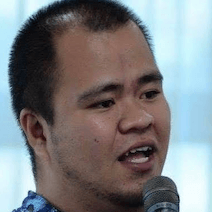SUMMARY
This is AI generated summarization, which may have errors. For context, always refer to the full article.
![[OPINION] It’s not a cockfight between farmers and queers](https://www.rappler.com/tachyon/r3-assets/612F469A6EA84F6BAE882D2B94A4B421/img/54D665BA688240F08047B637754BE0C2/gays-farmers_09192019.jpg)

Divide and conquer. This phrase describes an old tactic of war. Dominant groups use their weapons and authority to keep minorities segregated. A collective of minorities aware of the similarities of their experiences becomes a threat to the ruling class.
In the past weeks, we witnessed passionate discussions on LGBTQ+ rights and farmers’ welfare. The former gained traction when LGBTQ+ activists used Gretchen Diez’s case as a way to highlight discrimination in schools, homes, and workplaces, among others. The latter became a national issue because of the dramatic decrease in the price of rice that some analysts associate with the Rice Tariffication Law.
Heated discussions online set these two issues against each other. For many critics, the SOGIE Equality Bill should take a back seat to address farmers’ welfare. Some accused us of whining for insisting our rights amid the dire conditions faced by local farmers. These critics created a barrier between the issues of the two sectors. For them, one could not be addressed without abandoning the other.
The clear winner
While there is no evidence of concerted efforts to pit us against farmers; the clear winner in this artificial cockfighting is the powerful, not us. In cockfights, even winning roosters remain slaves to their masters. To maintain the mentality that looks at minorities as competitors rather than allies is to blame the suffering of one on the other.
This thinking loses sight of how powerful groups in society benefit from our misery. Instead of criticizing those who gain more from our struggles, we are made to direct our anger towards each other. Those who profit from our suppression are left out of the picture. Oppression, then, is harder to detect and cure since we leave the real oppressors untouched.
Not enough resources?
Of course, the most relevant anchor of the “prioritize narrative” is the lack of resources. We are compelled to give up some battles because we are made to believe there are not enough government resources to address both issues. Never mind the fact that the law requires 5% of the total budget for gender and development, which could be spent for SOGIE education.
It is worth noting that, according to the Presidential Anti-Corruption Commission’s (PACC) 2018 Report, the Department of Agriculture tied with other agencies at 4th place in terms of the number of verified complaints of corruption received (see PACC Bares State of Corruption in the Philippines). Although not necessarily equal to conviction, verified complaints signal the likelihood of corruption occurring in these government agencies.
In light of these allegations, the claim that there are no funds available for both sectors becomes questionable. These complaints lead us to ask: If there are cases of corruption in agencies meant to primarily address farmer’s welfare, is the “lack of resources” assertion valid? And if, indeed, there are many avenues of corruption, how can we trust these agencies to dispense services for both the LGBTQ+ and farmers?
The “lack of resources” argument blurs our vision. Instead of directing our call to more transparency from the ruling elites, it distracts us by focusing our conversations on what to prioritize and what other minorities to blame for our misery. We lose sight of the real culprit hiding behind and feasting over the cockfight between minorities like us.
Complementary, not competing
Resistance is more possible when we see each other not as competitors but as complementary actors. For example, the Lesbians and Gays Support Miners (LGSM) organization of Great Britain went to South Wales to help organize labor strikes in 1984. In turn, the National Union of Miners supported the 1985 London Pride March by showing up with one of the biggest contingents (see The True Story of “Pride”).
Only when we see our division as only beneficial to those who abuse power and not to our struggles that we can escape our respective and intersecting cages. Like in the case of LGSM, it serves us to work not only for our own salvation but also for other marignalized sectors. We must direct our battles not against those who, like us, are fighting in the ring, but rather against the masters enjoying seeing us in cockfights. – Rappler.com
John Andrew G. Evangelista or Andoy, for many, is an Assistant Professor of Sociology at the University of the Philippines Diliman. His research interests include LGBTQ politics, social movements, queer theories, gender, and sexuality studies.
Add a comment
How does this make you feel?
There are no comments yet. Add your comment to start the conversation.